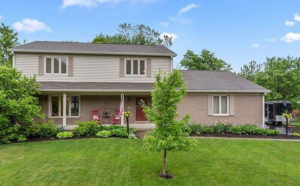
Thinking about applying for a reverse mortgage with a younger spouse? If you are over age 62 and your spouse is not, you might be wondering whether you can get a reverse mortgage. You also may be wondering whether there could be any potential hassles since your spouse is not a senior.
Yes, You Can Get a Reverse Mortgage With a Younger Spouse
First of all, it is possible to get a reverse mortgage if your spouse is under 62. All that is really necessary is that one person be age 62 or above. That person will need to sign on the reverse mortgage as a borrower.
Your Spouse Cannot Sign as a Borrower on the Reverse Mortgage
But it is important to know that if your spouse is under age 62, they will not be able to sign on the reverse mortgage with you as a borrower. You will be the only person signing on it with that status.
What Happens If You Die?
So long as you and your spouse are both living in the house, it should not matter that only one of you has signed on the reverse mortgage as a borrower. The loan will not come due until there is a maturity event.
But what happens if there is a maturity event? What if, for example, you die while your spouse is still alive? At that point, since you were the sole borrower on the reverse mortgage, the death of the last borrower will have occurred, which constitutes a maturity event.
Hypothetically, that would mean that the loan has come due. Indeed, in the past, it was due immediately at that point, and the surviving spouse needed to pay it back at that time, whether they could afford to or not.
That meant that in some cases, the surviving spouse needed to sell the house in order to pay off the reverse mortgage.
Thankfully, that is no longer the way things work. AARP sued the Department of Housing and Urban Development (HUD) in 2012. Not coincidentally, that was during the recession. Many homes were underwater, so it was not feasible for surviving spouses to sell them in order to pay off their reverse mortgages at that time.
The case made its way to the U.S. District Court for the District of Columbia, which reached a decision on September 30th, 2013 in favour of AARP. Beginning on August 4th, 2014, HUD changed its policy. You can read the relevant notice about the change here. Following that change, spouses under 62 have been able to sign on reverse mortgages, but they are listed as “non-borrowing spouses.”
As the linked HUD document explains:
“In the event the last surviving mortgagor predeceases a Non-Borrowing Spouse, the due and payable status will be deferred for as long as a Non-Borrowing Spouse continues to meet all the qualifying attributes stated in the above section.”
So, surviving spouses who are under 62 no longer need to immediately pay off a reverse mortgage if the borrowing spouse passes away.
If you take a look at the HUD document, you can read about the qualifying attributes in detail.
Get Answers to Your Questions About Reverse Mortgages in Indiana
Do you have more questions about how your age or that of your spouse impacts a reverse mortgage? We can answer these and other questions in detail during your consultation. To get the answers you are looking for, please give us a call today at (317) 255-0062. We can help you figure out if a reverse mortgage is right for you, or help you identify other solutions to increase financial flexibility during retirement.
Do you know how much home you can afford?
Most people don’t... Find out in 10 minutes.
Today's Mortgage Rates

